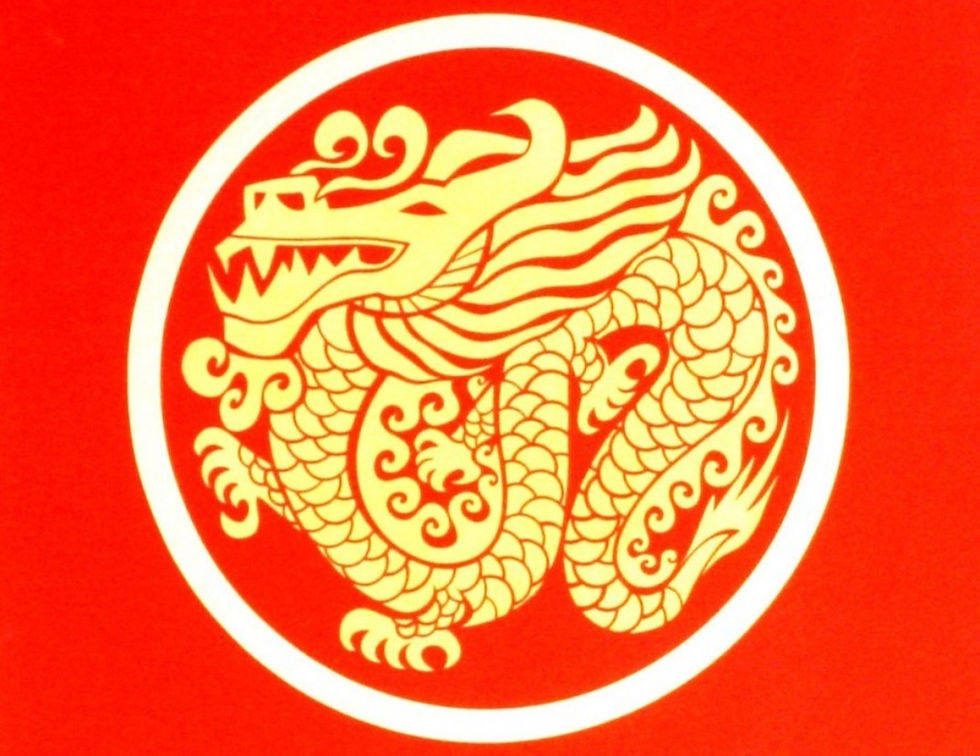How Strong is the Russian Economy?
- Richard Murff

- May 10, 2023
- 4 min read
Updated: Jun 28, 2023
And Why Should It Matter

It’s hard to celebrate a glorious victory from nearly 80 years ago when you are clearly losing a war to your former sidekick. In light of a pair of Ukrainian drones that made it almost to the Kremlin, Moscow canceled most of its previously scheduled Victory Day events in order to… well that is a good question.
Russia is in the middle of its eighth expansionist adventure since the fall of the Soviet Union in 1991 – but until last year, its army had managed to slap-around amateur separatist groups. This round turned out differently: Moscow has arguably shot its wad in Ukraine for the time being. They managed to make the city of Bakhmut unlivable, but whether they have taken the city is debatable. Indeed, Wagner chief Yevgeny Prigohzihn has publicly announced on social media that his mercenaries will withdraw from the symbolic, largely pointless, target for lack of ammunition and supplies as well as the “criminal” stupidity of the military command. A year ago, at last year’s more enthusiastic Victory Day parade, the man would have disappeared for a such an outburst of honesty. Moscow promised to give Prigohzihn what he wants and Wagner, for now, continues to grind Bakhmut down to dust.
Whether or not Moscow can deliver on the that promise is another matter.Just how strong is the Russian economy? It’s a question that has telescoping affects global markets.
In February, Russia suspended its nuclear arms treaty with the US by announcing it would station nuclear capable missiles in Belarus. This isn’t so much an actual escalation – if Russia were really planning to use the atomic option, it wouldn’t publicly niggle with the paperwork to make it “legal.” The threat is more powerful that the weapons themselves, although such is the nature of saber-rattling that we may wind up with a nuclear exchange whether anyone wants it or not.
The practical truth is that Russia can deal with a long war, but not an intensifying one. While Moscow’s official data show that the Russian economy is holding up better than expected, concentrating on metrics that Moscow can’t massage, like industrial pollution, shows a different picture. It’s a novel measure, with a logic along the lines of using satellite images of night-time lights as a proxy for economic development. Pollution data weren’t even possible to collect until 2017, when the European Space Agency launched its Sentinal-5P satellite, designed to detect a range of pollutants from space.
The data show that pollution in urban areas is up, which is easy to read. The Kremlin is at pains to show urban Russians, that their glorious war won’t cost them anything, because revolutions start in cities and very rarely in the country. So, the military has pressed conscripts from out in the stix where they are less likely to tip into a unified opposition. That being the case, the rural population is likely moving around to avoid conscription.
In industrial areas, though, industrial pollution is down 6.2% for the year – a larger drop that during the pandemic. Pollution associated with the auto-industry is down 16% for the same. Less pollution from factories equals less output, the logic goes, and a country on a war footing (or whatever they are calling it this week) should be going up – fast. The obvious explanation is that output isn’t going but because it can’t.
Tragic as this is to the Ukrainians, the global economy is facing a lesser crisis. Other than hydro-carbons and heaps of middling wheat, Russia really isn’t tied in to the global markets. The war will draw a line under grain and energy prices for the (likely drawn out) duration but the world is adjusting. Realigning European energy markets will be painful, but not mortal. (For the record, the answer here is not wind and solar, that’s just the bandage, it’s nuclear energy. Stay tuned.) Even with an end to the war, the European energy tap won’t likely get turned back on - driving up prices on hydro-carbons but squeezing Europe harder than the US, which has become a net exporter of energy. A decoupling of the Russia economy from the West will move the needle, but it won’t send global markets into spasms.
China is another kettle of fish. A decoupling of the Middle Kingdom with the West would wreak havoc globally, create two exclusive, and redundant, global supply networks, likely take down the dollar as the reserve currency, and force all markets to choose a side.
The Ukraine war, and Beijing’s recently brokered accord between Iran and Saudi Arabia, has ensured that China will have enough cheap energy to fuel its coming needs - its pollution isn’t dipping anytime soon, and won’t until its demographics crash. Putting US and Western markets in a bind over rare earths and other Chinese exports.
On the political front, Beijing can’t afford for Russia to lose, but doesn’t need what we’d call a decisive victory, either. Which gives China a distinct game advantage to let the West exhaust itself in Europe. Ukraine (and to some extent the West) define a victory as driving the Russians out of Ukraine proper as well as Crimea. Ejecting Russian troops out of mainland is no mean feat as they are dug in, but it is a plausible scenario. Getting them out of Crimea is less so – total open war with the West might not do it, but would likely trigger a nuclear exchange.
To cede Crimea to Moscow will be read as a humiliating “Chamberlain at Munich” concession in the West. For Moscow, any cease-fire or settlement can be spun as a victory. It would buy time rebuild an incompetent military, while destabilizing Ukraine politically until it has an opening to have another go – likely after a Chinese assault on Taiwan has begun.







